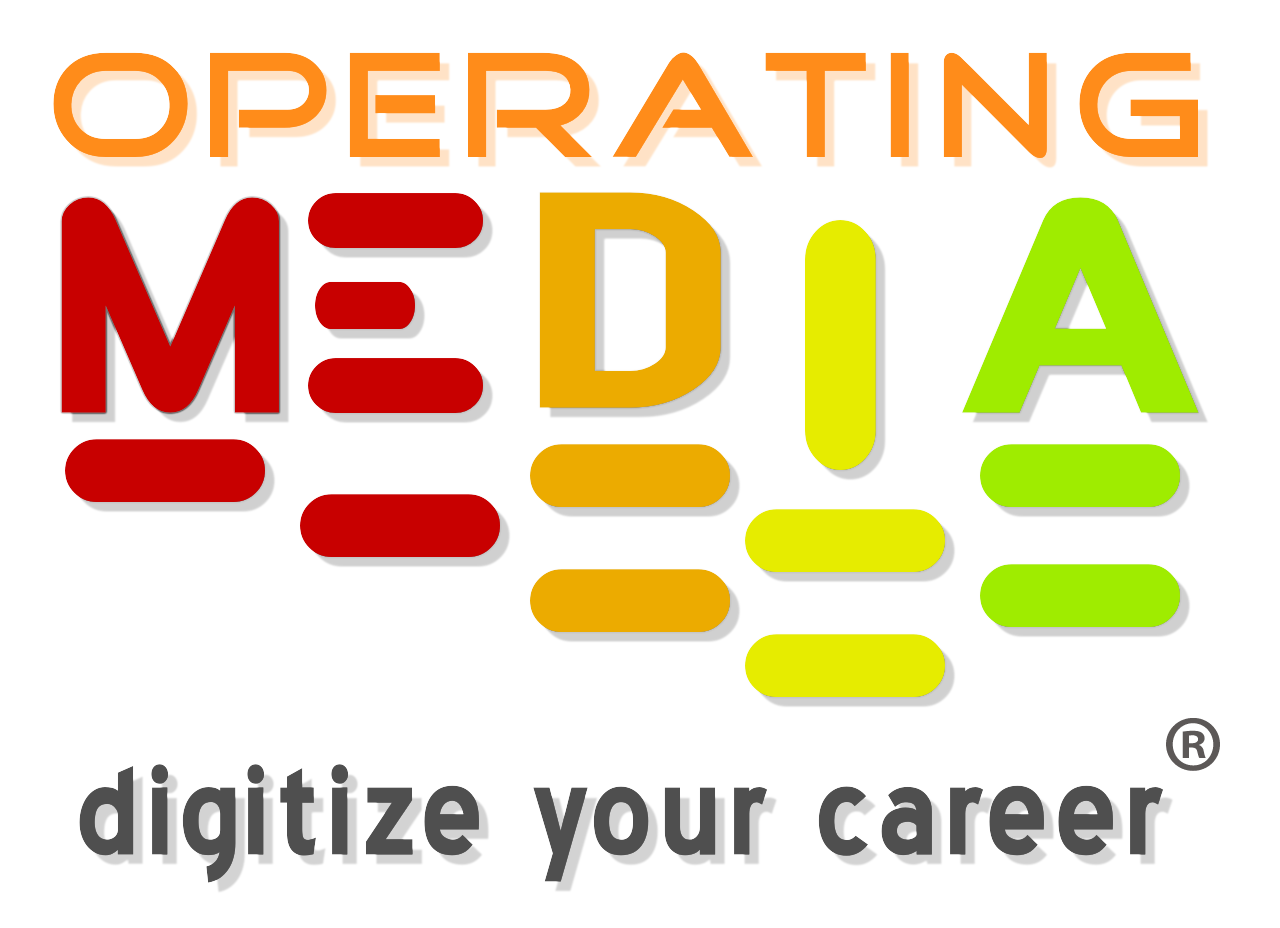Website Development With WordPress
- Introduction to WordPress
- High-Converting Landing Page
- Advanced Design Techniques
- Integrating Marketing Tools
- WordPress installation and settings
- WordPress dashboard & Managing users
- Getting Started with Elementor
- Importing and exporting the site
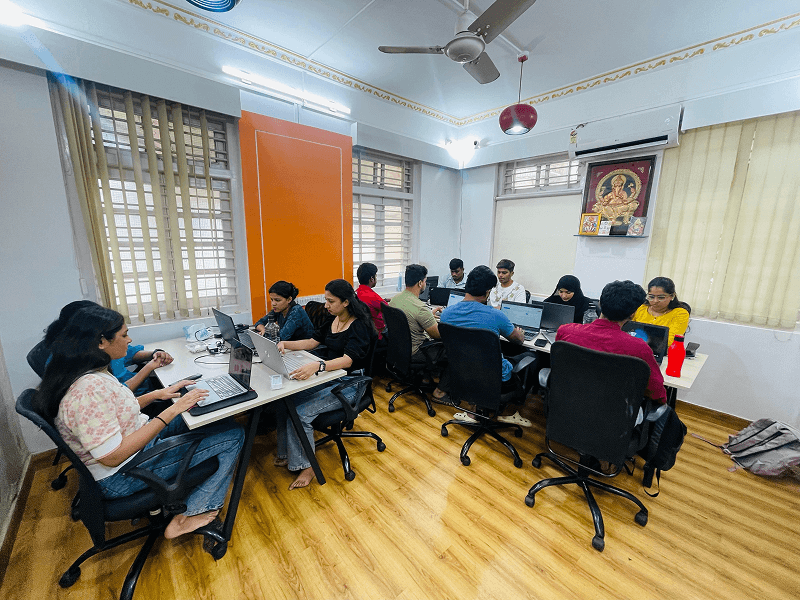
Course Overview
WordPress is a free and open source content management system (CMS) developed on PHP and MySQL. You can use WordPress to create your own website or blog without programming knowledge. It has many features including plug-in architecture and template system. WordPress is used by over 15% of “top 1 million” websites and is currently the most popular blogging system in use.
One of the primary attractions of WordPress is its user-friendly interface, which allows individuals with no programming knowledge to create and manage websites easily. The platform’s intuitive dashboard simplifies the process of content creation, editing, and publication. Users can quickly add pages, posts, images, and multimedia content, organize their site structure, and manage user permissions with just a few clicks. The WYSIWYG (What You See Is What You Get) editor makes formatting content straightforward, mirroring the appearance of the final published page.

Branches
Borivali
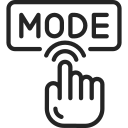
Mode

Batch Timings

Batch Capacity

Fees
What Makes Operating Media #1 Digital Marketing Institute In Mumbai
- Trusted Institute since 2011
- Trained over 11000 students
- Personalized Batches of around 10 students
- Cover up sessions for missed lectures
- Flexible Timings
- Weekdays and Weekend Batch
- Diploma Certificate upon Completion
- Official Google Certification
- Course Notes with Future Updates
- 100% Job Assistance
- Android and IOS App
- LMS Access
Step into the World of Digital Excellence – Download Our Course Brochure!
Tools Covered








WordPress Syllabus
Landing Page Design using Elementor
- Introduction to Landing Pages
- What is a Landing Page?
- Importance of Landing Pages in Digital Marketing
- High-Converting Landing Page
- Getting Started with Elementor
- Designing Your First Landing Page
- Planning Your Landing Page Layout
- Adding and Customizing Sections and Columns
- Advanced Design Techniques
- Utilizing Advanced Widgets: Forms, Icons, and Videos
- Styling and Customizing Widgets
- Conversion Optimization
- Integrating Marketing Tools
- Integrating Email Marketing Platforms (e.g., Mailchimp, Constant Contact)
- Adding Analytics and Tracking (Google Analytics, Facebook Pixel)
- Using Pop-ups and Lead Capture Forms
- Implementing Social Proof: Reviews, Testimonials, and Trust Badges
- Publishing and Analyzing Performance
- Case Studies of Successful Landing Pages
Website Creation on WordPress
- Introduction to WordPress
- WordPress installation and settings
- WordPress dashboard& Managing users
- Links structure management
- Adding a contact form &installation of themes
- Social media plugins & managing plugins
- Creating and customizing the slider
- Importing and exporting the site
Industry Expert Mentors
250+ placement partners




















250+ placement partners













Feeling confused? Discover the perfect digital marketing course to kickstart your journey.

Success Stories
Certified by Operating Media
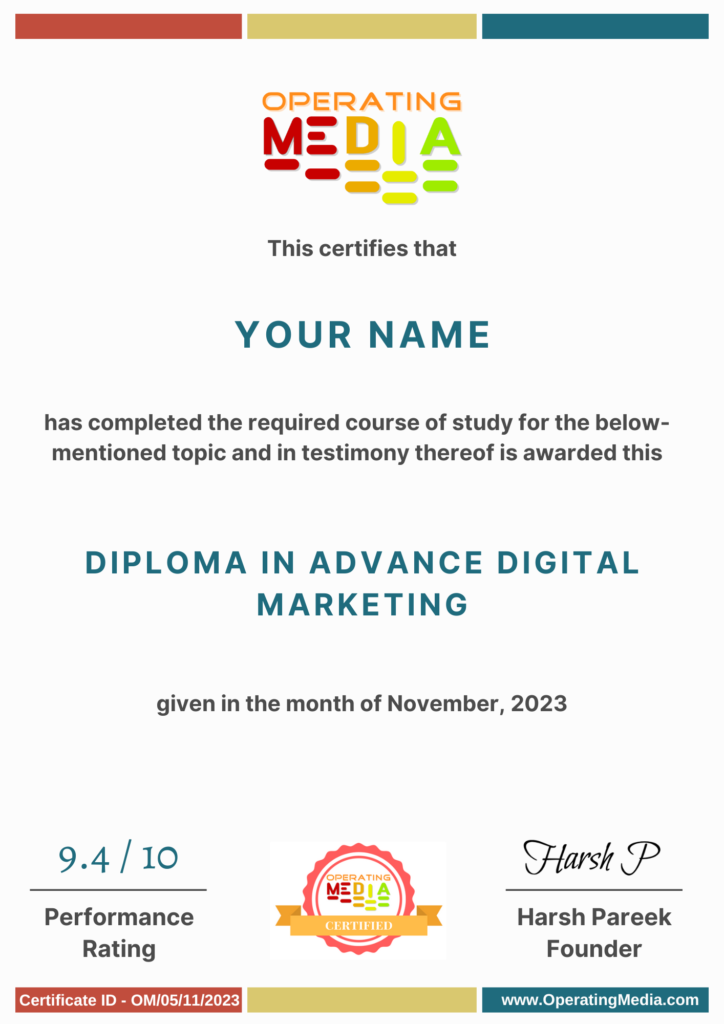
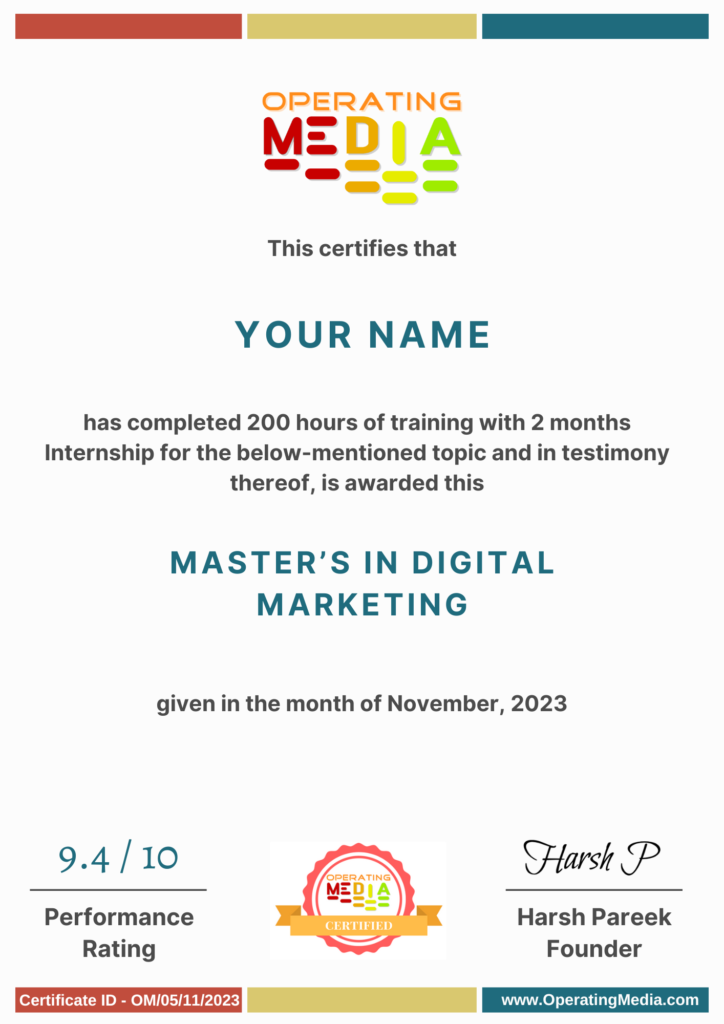
Get Started with Our Learning Management System (LMS)
Access your personalized student dashboard using your Student ID and password. Our LMS is designed to enhance your learning experience with the following features:
- Track Your Progress – Monitor your course completion, module status, and performance analytics.
- Student Forum – Participate in discussions, ask questions, and connect with peers.
- Resource Library – Download notes, view reference materials, and stay updated with the latest digital marketing content.
- Feedback Section – Share your thoughts, reviews, and suggestions directly through the platform.
- Batch Schedule – View upcoming class schedules and batch start dates in advance.
- Attendance Tracking – Easily check your attendance records for each session.
Frequently Asked Questions
Digital marketing involves promoting products or services through digital channels such as search engines, social media, email, and websites. It includes strategies like SEO, content marketing, PPC advertising, social media marketing, and more.
Our courses are designed for a wide range of individuals, including students, marketing professionals, business owners, and anyone looking to enhance their digital marketing skills.
No prior experience is required. We offer courses for beginners as well as advanced levels for those who already have some knowledge of digital marketing.
